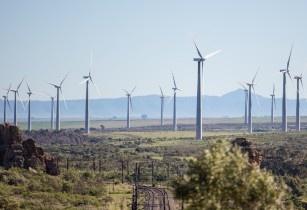An integrated policy framework built around the energy transition could bring a wave of new sustainable energy investment to Africa, growing the region’s economy by 6.4% by 2050, results of an analysis published today by the International Renewable Energy Agency (IRENA) in collaboration with the African Development Bank (AfDB) revealed
The report, Renewable Energy Market Analysis: Africa and Its Regions, shows that Africa is prospering significantly from development enabled by renewables, while greatly improving energy access and offering profound welfare and environmental benefits to people across the continent.
Its vision for an energy transition in Africa aligned with global climate ambition, shows the continent generating 26 million more economy-wide jobs by 2050 than is anticipated under a business as usual scenario plans. Jobs created through the energy transition in Africa would outstrip fossil fuel related job losses by a factor of four, presenting a significant net gain to regional economies. Around two million people currently work in the fossil fuel industry in Africa.
“Africa’s governments and people are too often asked to rely on unsustainable fossil fuels to power their development when renewable energy and energy efficiency solutions offer economically attractive and socially beneficial alternatives,” said Francesco La Camera, director-general of IRENA.
“The transition offers a unique opportunity for Africa to meet its development imperatives. Through tailored policy packages, African countries can harness their strengths and resources to overcome long-established structural dependencies.”
“Africa is endowed with abundant renewable energy sources, upon which it can sustainably base its ambitious socio-economic development. However, this requires strong political commitment, a just and equitable energy transition framework, and massive investments,” said Dr Kevin Kariuki, AfDB, vice-president for power, energy, climate and green growth.
Coal, natural gas and oil together account for about 70% of Africa’s total electricity generation today and conventional power attracts far more funding than renewables in Africa, owing to an established process that favours less capital-intensive thermal generation, the report notes. Energy transition finance must become more readily accessible. Coordinated efforts should be made to ensure public spending – the dominant source of energy transition finance in Africa – clearly prioritises renewables.





















